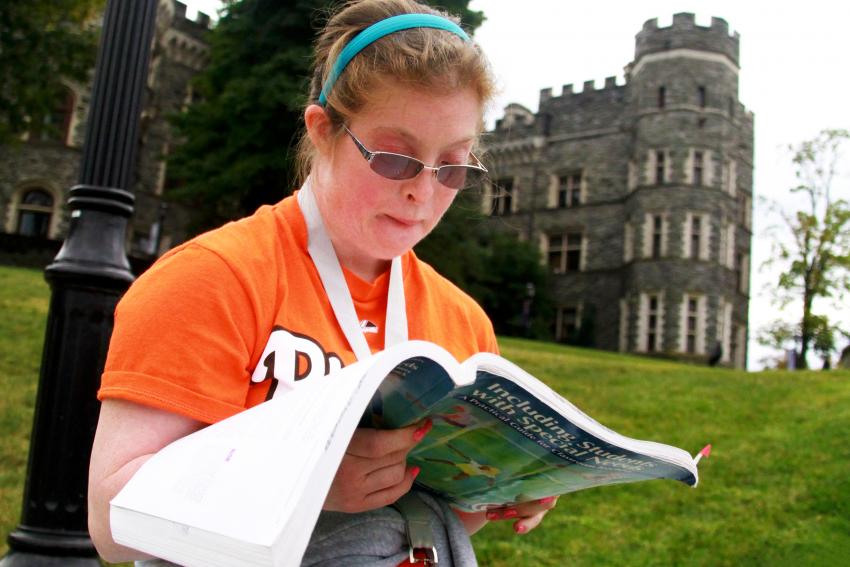Arcadia Program Earns Award to Expand Program for Students with Disabilities

Megan Murphy ’15 studies in front of the castle.
For the first time, the Raising Expectations for Academic Learning (REAL) Certificate program at Arcadia University will be able to offer three partial scholarships to current and new students with autism, thanks to the $15,000 award as part of Autism Speaks’ Brian & Patricia Kelly Postsecondary Scholarship. Autism Speaks is a national advocacy organization, which focuses on funding research and increasing awareness for autism.
The award will enable the REAL program to expand with more students in the 2016-17 school year, when one returning and two new students each will receive a one-time $5,000 scholarship. Clare Papay, assistant professor in Arcadia’s School of Education and faculty mentor for the REAL Certificate, said the scholarships will pay for approximately half a year of the program.
“Because our students are nontraditional, they do not have access to the same kinds of financial aid as traditional students, such as student loans,” Papay said. “We are always seeking means to support our students, especially those who might not have the financial means to pursue postsecondary education.”
Students will need to apply for the scholarship through the program, which Papay said will include an essay about what academically motivates them, and how the program will impact their life. Should more than two students apply for the new student scholarships, financial need will be a determining factor as well.
The REAL Certificate is a two-year comprehensive transition and postsecondary program at Arcadia that offers students with disabilities the opportunity to participate in the same learning environments available to same-age peers in an academic-, vocational- and social inclusion-focused program. A college participation plan is developed for each student based on their needs and interests.
“The REAL Certificate shows Arcadia’s strong commitment to social justice and inclusion,” Papay said. “It allows us to serve students who might typically be excluded from a university campus because of perceptions regarding their intellectual capabilities. It provides students with access to academic coursework and work experiences that enable them to become productive members of society.”


